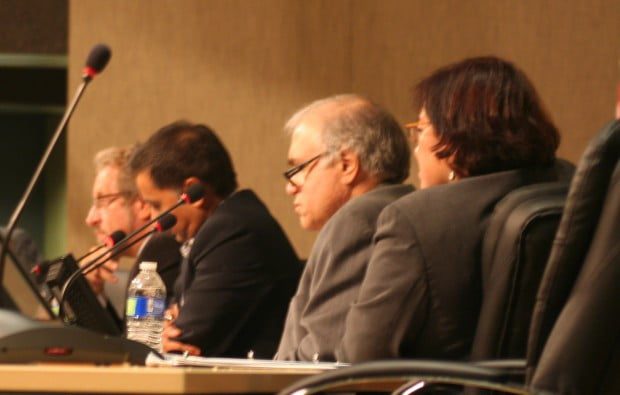
School board members instructed district staff to send out letters imploring parent groups to send in their contributions to the Equity Fund, which accumulated $40,000 less in 2011-12 than the year before.
The letters will stress the importance of the Equity Fund, an invention created under the supervision of then-Superintendent John Deasy that required roughly 15 percent of PTA contributions go into a central pot and be distributed based on a point system that judges the relative need of each school.
That money is used to fund programs that improve the achievement of all students while simultaneously closing the achievement gap by smoothing out the economic disparities among schools, according to board policy.
At a presentation to the Board of Education Thursday last week, however, the numbers fell short, with only $340,311 available to distribute amongst the schools compared to $379,764 the year before.
That’s the lowest level since the 2007-08 school year, although an unusually high contribution from the Educational Services Department in the 2009-10 school year may have skewed the numbers somewhat.
A table presented by Terry Deloria, the new assistant superintendent for Educational Services, showed a marked drop off in contributions from certain district schools, including Webster Elementary in Malibu, which contributed almost $30,000 less in 2011-12 than it had in the previous year.
Lincoln Middle School’s PTA contribution also dropped significantly from $16,454 to $3,174 over the same timespan.
Other schools, like Franklin Elementary School PTA, pitched in much more, up almost $19,000 from the year before.
The fluctuations raised red flags from school board members, who worried that some PTAs were dodging their required contributions.
“This is a board policy and we need to put teeth in this policy to enforce it,” said Boardmember Nimish Patel. “We have to find other ways of encouraging them to make timely payments, and if they don’t, put other payments that accrue on top of it.”
That’s easier said than done.
PTAs are private organizations, and the district has no right to police them or audit their books. The only control the board has over PTA contributions is to refuse to accept their money, said Superintendent Sandra Lyon. In effect, that would deny local schools field trips, supplies and—until a new districtwide fundraising policy kicks in next school year—salaries for reading specialists and other contract workers paid for with PTA funds.
When the Equity Fund was created in 2004, school board members wrestled with the same issue, said Boardmember Jose Escarce.
“We designed it to be an honor system,” he said. “We anticipated that all schools will do what they should do.”
A glance at the chart shows that has worked better with some schools than others. However, those Equity Fund dollars help pay for things like Young Collegians and Connect For Success, two programs that target either underachieving students or first-generation college goers.
“These are exactly the type of programs we had in mind when we developed the Equity Fund,” said Boardmember Oscar de la Torre. Without that additional funding, those programs could suffer, he said.
The Equity Fund is trumpeted by supporters as a first step toward leveling the playing field in the school district, one that paved the way toward the new controversial districtwide fundraising policy which prohibits parents from paying for staff salaries.
Instead, parents can only buy “stuff,” which includes technology and field trips. Parents will also be encouraged to give to the Santa Monica-Malibu Education Foundation, which will pay for “premium programs” for the entire district. The move was not universally popular, and neither was the Equity Fund, which many referred to as the “equity tax” during the hearings on districtwide fundraising.
This article originally appeared in the Santa Monica Daily Press.
